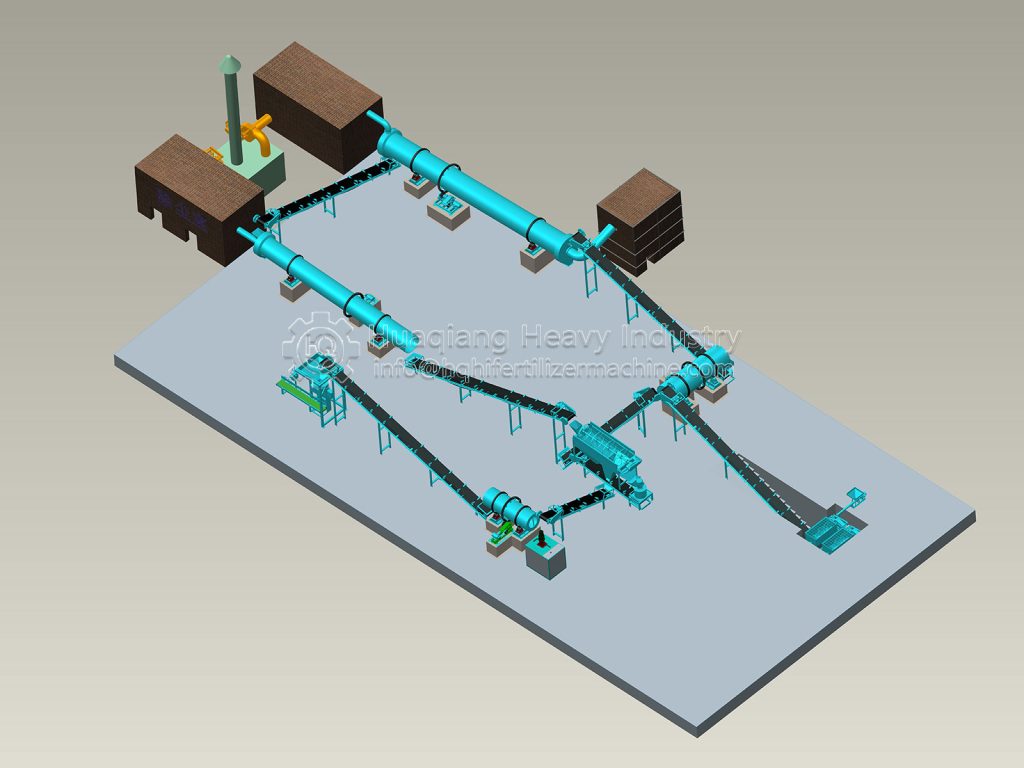In modern agricultural production, fertilizer, as the “food” of food, directly impacts crop yield and quality. NPK compound fertilizers have become a mainstream fertilizer type because they simultaneously provide crops with the three core nutrients of nitrogen, phosphorus, and potassium. Choosing a specialized production line for production further enhances its advantages in many areas.

To meet the comprehensive nutritional needs of crops, NPK compound fertilizer production lines can precisely control the ratios of nitrogen, phosphorus, potassium, and other trace elements. Nutrient requirements vary significantly between crops at different growth stages. For example, wheat requires a high nitrogen ratio during the jointing stage, while fruit trees require a high potassium ratio during the fruiting stage. Through a scientific batching system, the production line can flexibly adjust the formula to produce highly targeted, specialized fertilizers, avoiding the nutritional imbalances often associated with single-element fertilizers. This promotes balanced crop growth and improves yield and quality.
This production line offers significant advantages in terms of resource utilization and environmental protection. Traditional fertilizer production often suffers from raw material waste and high energy consumption. Modern NPK compound fertilizer production lines utilize advanced mixing, granulation, and drying technologies, fully utilizing various NPK raw materials and minimizing raw material loss. Furthermore, the production lines are equipped with comprehensive exhaust gas treatment and dust recovery systems, effectively reducing pollutant emissions during production. This aligns with current green agricultural development concepts, minimizes environmental impact, and achieves a synergistic development of ecological and economic benefits.
From the perspective of production efficiency and cost control, the NPK compound fertilizer production line achieves large-scale, automated production. The automated control system precisely controls parameters at every stage of production, minimizing manual intervention and operational errors, improving production stability and product quality. Large-scale production reduces raw material procurement costs, labor costs, and energy consumption per unit of product, giving companies a competitive price advantage in the market. Furthermore, the production line can quickly respond to the high demand for NPK compound fertilizers, ensuring a stable supply of fertilizers for agricultural production and providing strong support for increased agricultural yields and income.